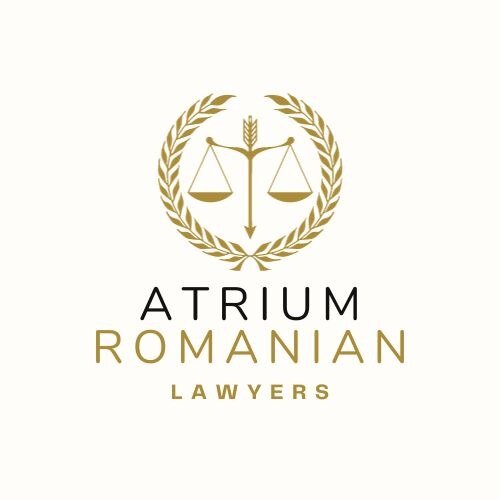Best Retirement Lawyers in Bucharest
Share your needs with us, get contacted by law firms.
Free. Takes 2 min.
List of the best lawyers in Bucharest, Romania
About Retirement Law in Bucharest, Romania
Retirement in Bucharest, Romania, operates under a set of national laws that govern pensions and retiree benefits. These laws are designed to ensure that individuals who have reached retirement age are able to receive financial support commensurate with their contributions during their working life. The Romanian retirement system is primarily based on the public pension pillar, but other aspects such as private pension schemes and international agreements also play a role. Reforms over recent decades have aimed to modernize and make the system more sustainable as demographic shifts continue to affect the workforce.
Why You May Need a Lawyer
While navigating the retirement process, individuals may encounter various challenges that necessitate legal consulting. Common situations include disputes regarding pension calculations, issues arising from early retirement options, or complications with private pension fund claims. Legal assistance may also be required to understand international pension rights for expatriates or returning Romanian citizens, particularly in interpreting bilateral agreements or European Union regulations.
Local Laws Overview
Bucharest, like the rest of Romania, falls under national retirement laws, primarily governed by Law No. 263/2010 on the Unit Pension System. Key aspects include the statutory retirement age, which is currently 65 for men and steadily increasing for women, and the calculation method for pensions based on lifetime contributions. Entitlements can be affected by factors such as employment history, whether the worker was self-employed or a government employee, and special cases such as disability. Private pension plans, introduced in 2007, provide an additional voluntary savings option, and the complex legal environment surrounding them often necessitates professional advice.
Frequently Asked Questions
What is the statutory retirement age in Romania?
The statutory retirement age is 65 for men. For women, it is gradually increasing and is expected to equalize with men's by 2030.
How is my pension calculated?
Pensions are calculated based on the contributory period, the level of contributions made during the employment period, and additional factors such as any awarded bonuses or the worker's overall career average wage.
Can I retire early?
Early retirement is possible under specific conditions, such as having sufficient contributory years. However, this often results in reduced pension benefits.
What is a private pension plan?
A private pension plan in Romania is a voluntary savings scheme aimed at supplementing the state pension. It allows workers to contribute part of their income into an investment fund.
How do international agreements affect my pension?
International agreements, particularly within the EU, allow for the aggregation of contributory periods from different countries, meaning contributions from another EU state can potentially count towards your Romanian pension.
What happens if I did not contribute enough to qualify for a pension?
In some circumstances, individuals who do not qualify for the full pension might be eligible for a minimum social pension or can choose to receive a return on their contributions in other forms, depending on circumstances.
Are there tax implications for receiving a pension?
Yes, pensions are subject to income tax, although thresholds and allowances often vary, and some pensions might qualify for reduced tax rates or exemptions.
What is the process for claiming a pension?
To claim a pension, individuals must file an application with supporting documentation at the relevant public pension service office. It's crucial to begin this process several months before reaching retirement age to ensure timely processing.
Can pensions be transferred from abroad?
Yes, through bilateral agreements and EU regulations, pensions can often be transferred from a host country to Romania, but specific processes and documentation will apply.
How can I resolve disputes with my pension provider?
It’s advisable to first address any grievances directly with the pension provider, and if not resolved, to seek legal counsel for further action, which might include mediation or court proceedings.
Additional Resources
For further information and assistance, consider reaching out to entities such as the National House of Public Pensions in Romania, or consult the Romanian Pensioners’ Federation for advocacy and support. International bodies such as the European Union often have publications and guidelines pertinent to cross-border retirement issues.
Next Steps
If you require legal assistance in retirement matters, consider contacting a lawyer specializing in pension law. Preparing documentation and gathering information on your employment history and contributions are critical initial steps. Consultation with legal experts can offer clarity on specific rights and obligations, and help navigate complex statutes effectively, ensuring a smoother transition into retirement.
Lawzana helps you find the best lawyers and law firms in Bucharest through a curated and pre-screened list of qualified legal professionals. Our platform offers rankings and detailed profiles of attorneys and law firms, allowing you to compare based on practice areas, including Retirement, experience, and client feedback.
Each profile includes a description of the firm's areas of practice, client reviews, team members and partners, year of establishment, spoken languages, office locations, contact information, social media presence, and any published articles or resources. Most firms on our platform speak English and are experienced in both local and international legal matters.
Get a quote from top-rated law firms in Bucharest, Romania — quickly, securely, and without unnecessary hassle.
Disclaimer:
The information provided on this page is for general informational purposes only and does not constitute legal advice. While we strive to ensure the accuracy and relevance of the content, legal information may change over time, and interpretations of the law can vary. You should always consult with a qualified legal professional for advice specific to your situation.
We disclaim all liability for actions taken or not taken based on the content of this page. If you believe any information is incorrect or outdated, please contact us, and we will review and update it where appropriate.











